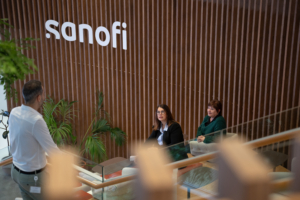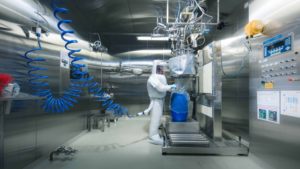€21.5m for Oxford stem cell spinout
Newly spun out company OxStem has raised £16.9m (€21.5m) to develop regenerative meds for the treatment of age-related disease. It is the largest financing for an Oxford spin-out - or any UK academic spin-out - to date.
The new spin-out from the prestigious Oxford University OxStem will design small molecule drugs that can programme resident stem and stem-like cells in situ to treat currently untreatable age-related conditions. OxStem plans to reprogramme stem and stem-like progenitor cells that already exist in the body, bypassing the need for cell transplantation procedures. The company will tackle age-related diseases, such as dementia, heart failure, cancer and AMD.
OxStem will fund the development of a series of daughter companies – each with a focus on a different large unmet therapeutic need. The first of these companies is OxStem Oncology, which will investigate the potential for intervening in therapy-resistant cancers. The team will focus initially on Acute Myeloid Leukaemia and Myelodysplastic Syndromes with a view to expanding to other conditions over time. Plans are well advanced for the subsequent launch of OxStem Cardio, OxStem Neuro and OxStem Ocular to apply the stem cell technology to developing therapies for cardiac failure, neurodegenerative diseases, and macular degeneration.
The driving force behind the company are three British scientists and serial entrepreneurs: Steve Davies, Waynflete Professor of Chemistry, Dame Kay Davies, Dr Lee’s Professor of Anatomy and Associate Head, Medical Sciences Division, and Angela Russel, Professor in Medicinal Chemistry.
Oxford’s Isis Innovation supported the Company in preparing the spinout and commercialising the technology. Aside from investments by Oxford Sciences Innovation and private investors, the company has the strategic backing of Human Longevity Inc, whose CEO Craig Venter will also sit on the scientific board. HLI is eager to work with OxStem to jointly discover new classes of stem-cell based therapies to help enable a true era of personalised medicine, Venter commented.
We have been very fortunate in being able to collaborate with some 80 University colleagues, all leaders in their respective fields, to match our insights and skills with their domain expertise to innovate clinical models and potential therapies, said Steve Davies. This is Oxford science at its best.


 ©FabienMalot
©FabienMalot Lonza Group
Lonza Group Vetter Pharma
Vetter Pharma